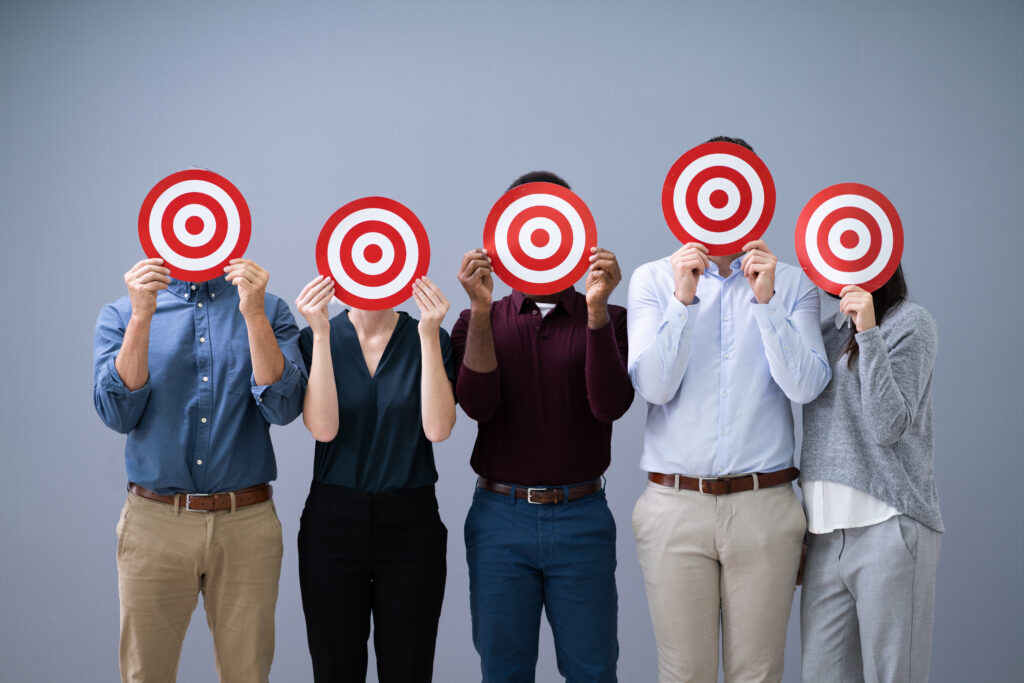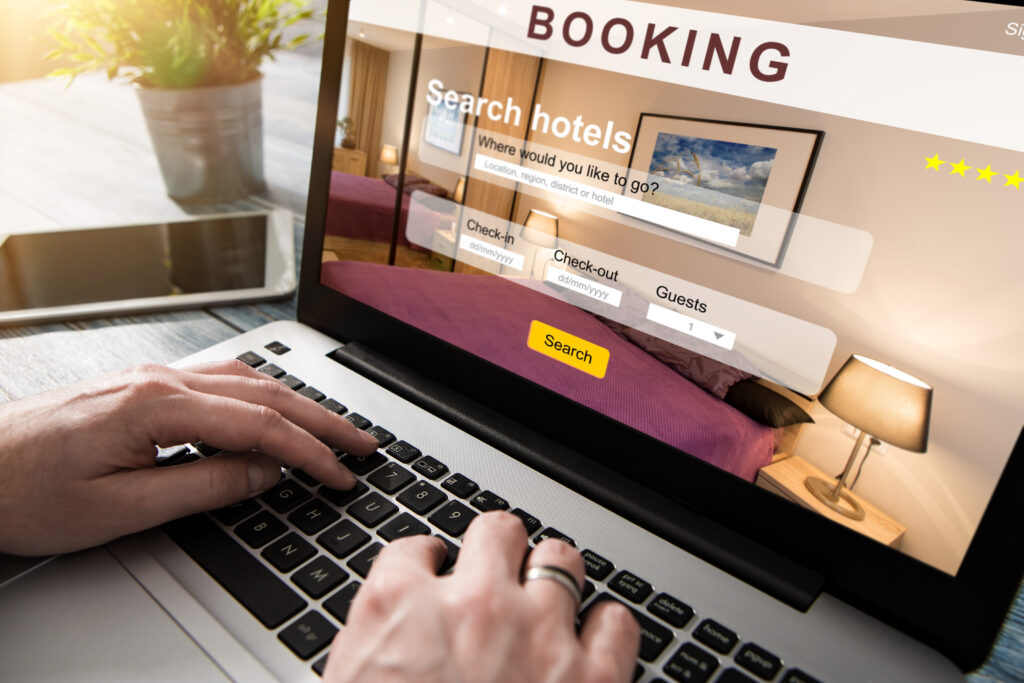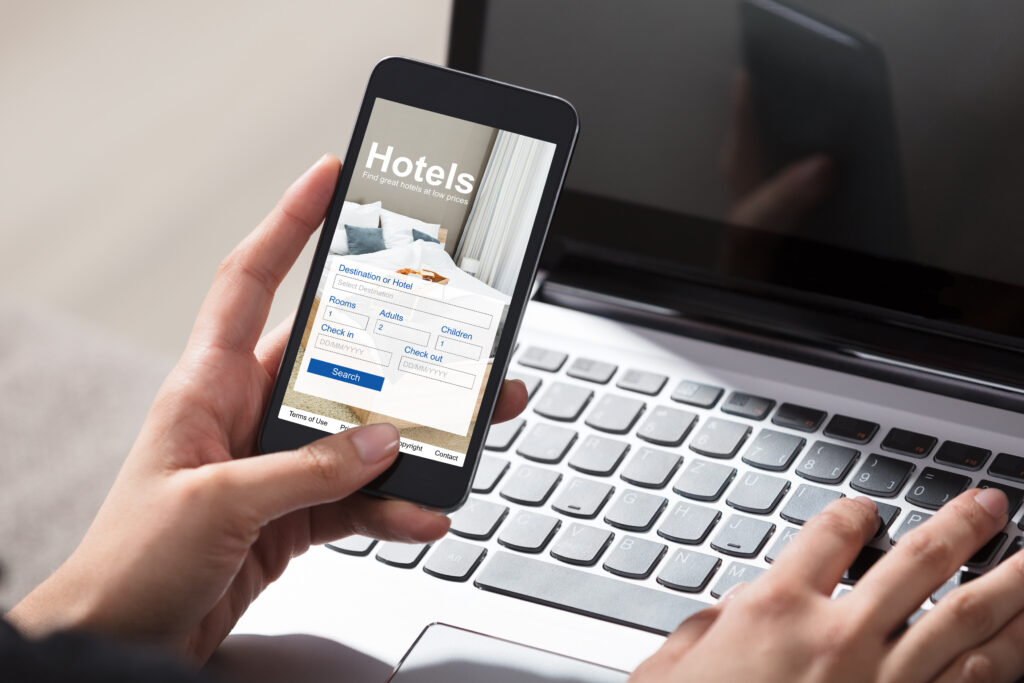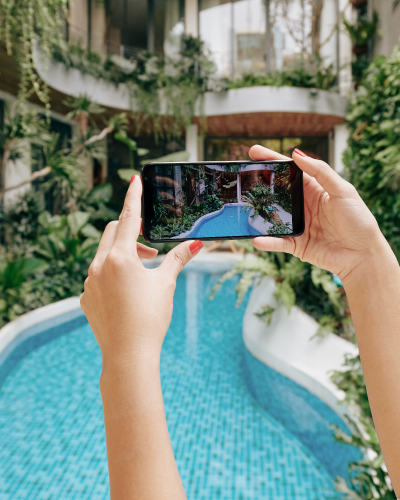Targeting the Right Audience: Hotel Guest Personas
The Business Traveller

Table of Contents
What Are Hotel Guest Personas?
In today’s highly competitive hospitality industry, it is crucial for hoteliers to understand their target audience in order to get the most out of their marketing strategy and Return on their Ad Spend (ROAS). This is made possible with the use of hotel guest personas, which allow each business to tailor their offerings and provide personalised experiences that meet the unique needs and preferences of each potential guest. For instance, a family on vacation has different expectations than a solo traveller on a business trip.
By categorising guest personas, hotel businesses can deliver relevant marketing messages that resonate with their ideal guests, capturing their attention at the right moment. This not only increases the likelihood of bookings but also fosters brand equity and customer loyalty. Moreover, leveraging hotel guest personas enables maximising of the revenue by developing targeted packages and campaigns that cater to specific customer segments.
Keep reading to find out what exactly are hotel personas and what their characteristics are.
A hotel guest persona is a fictional character that represents the ideal hotel visitor who sets out to visit a hotel’s website and make a reservation. They effectively represent the purchasing decisions that visitors make as they consider making a reservation at the hotel.
The persona can be created based on several different factors, such as the purpose for visiting the hotel/type of traveller, age, online booking behaviour, season, the behaviour they exhibit when browsing the hotel’s website, and sexual orientation – a niche that has recently become distinguished and could substantially affect the behaviour and choices of potential guests who fall within this segment. It is also common practice to combine these characteristics in order to get a more holistic image of the prospective visitors and make targeting more precise, which in return could bring in more for the business.
What follows is the most commonly used personas for each of the aforementioned categories.
Type of Traveller
The Business Traveller
This persona typically travels for work purposes and values efficient, seamless service, high-speed internet, comfortable workspace in the room, and a convenient location. They may also appreciate perks like express check-in/check-out, meeting rooms, and business centers.

The Leisure Traveller
This persona could be a couple, family, group of friends, or a solo traveller seeking relaxation and leisure. They value hotel amenities such as a swimming pool, spa, fitness center, and recreational activities. For them, the local attractions and hotel’s surroundings are also crucial.
The Luxury Seeker
This persona seeks a high-end, luxury experience. They value personalised service, high-quality amenities, gourmet dining options, and unique, well-designed spaces. Price is less of a concern for them compared to the overall quality and exclusivity of the experience.

The Adventure Seeker
This persona is often younger and may be travelling alone or in a small group. They’re looking for unique experiences, adventurous activities, and local culture. They value hotels that can provide information and connections to local attractions and activities.
The Budget Traveller
This persona is cost-conscious and seeks the best value for their money. They’re looking for clean, comfortable, and affordable accommodations. They may be willing to forgo certain amenities if it means a lower price.
The History and Culture Enthusiast
This persona is typically interested in learning about the history and culture of the places they visit. They’re likely attracted to hotels that are located near museums, historical sites, or cultural landmarks. They might also appreciate amenities like guided tours, history-themed events, or information and booking assistance for local cultural attractions. This group might spend time on the parts of a hotel website that highlight these features and local attractions.
The Long Stay Guest
This persona could be someone on a business assignment, a digital nomad, or someone in need of a temporary home. They value kitchen facilities, laundry services, and a homely atmosphere in the hotel.
The Art Seeker
This group is typically interested in local culture and arts. They would likely be attracted to hotels that showcase local artwork, have partnerships with local museums or cultural institutions, or are located near art districts or cultural landmarks. They might also appreciate hotel amenities like art tours, art classes, or art-themed events. The Art Seeker might spend time on the parts of a hotel website that highlight these features and activities. Unlike the History and Culture Enthusiast, they are more focused on contemporary artistic experiences rather than historical or cultural learning.
The Event Planner
This persona may be planning a wedding, a conference, or a large group trip. They require event spaces, catering services, and group booking options.
The Party Animals / Clubbers
This group is typically interested in hotels with vibrant nightlife, close proximity to local clubs, bars, or music venues, or hotels that host their own parties or events. They often keep late hours and might not prioritise amenities like early morning breakfast or wellness facilities. They appreciate services like late check-in/check-out and may value features like soundproof rooms. This group might also be interested in packages or promotions related to local nightlife or events.
Online Behaviour
The Researcher
This visitor thoroughly reads through all the information provided on the website, from room details to amenities to guest reviews. They might spend significant time on the site and visit multiple times before making a booking.
The Impulse Booker
This visitor quickly scans the website and makes a booking within a short period. They don’t spend much time on research or comparing options.

The Price Comparer
This visitor often checks the rates of various room types and dates, possibly trying to find the best deal. They might also visit other travel or hotel booking websites to compare prices.
The Frequent Visitor
This visitor regularly visits the website, possibly to check for new deals, offerings, or availability. They may be a loyal customer or planning a future trip.
The Window Shopper
This visitor browses through the site, checking out different rooms, amenities, and services but doesn’t make a booking. They could be dreaming of a future trip or just enjoying looking at hotel offerings.
The Event Planner
This visitor pays close attention to details about event spaces, catering services, and group booking options. They spend time on these specific pages and may submit inquiries related to events.
The Abandoned Booker
This visitor initiates the booking process but abandons it before completion. They may have encountered an issue or decided to reconsider their options.
The Mobile User
This visitor primarily accesses the website through a mobile device. They value a seamless mobile experience and quick access to relevant information.

Season
The Christmas Vacationer
This visitor looks to book a stay during the Christmas holiday period, possibly for a family gathering, a getaway, or to enjoy the hotel’s festive offerings.
The New Year’s Eve Reveler
This visitor is interested in booking a stay during New Year’s Eve. They might be attracted by special events, parties, or simply the chance to welcome the New Year in a different location.
The Spring Breaker
This visitor, often a student or a family, seeks to book a stay during the spring break period. They may be looking for a fun, relaxing break from school or work.
The Summer Vacationer
This visitor books during the summer holiday period. They may be families, couples, or solo travellers seeking a summer getaway.
The Thanksgiving Traveller
This visitor seeks to book a stay during the Thanksgiving holiday, often to visit family or take a short break.
The Festival Goer
This visitor books during local festivals or events. The timing of their stay is tied to the dates of these events.

The Off-Season Opportunist
This visitor looks for bookings during the off-peak or shoulder seasons to take advantage of lower rates and fewer crowds.
The Long Weekend Traveller
This visitor books around public holidays that create long weekends. They’re likely looking for a quick getaway without taking many days off work.
Website Behaviour
The Spa Enthusiast
This visitor spends a significant amount of time on the spa section of the website. They’re interested in wellness and relaxation services and may be more likely to book a spa package or a stay that includes spa services.

The Foodie
This visitor is interested in the hotel’s dining options and spends time in the gastronomy section. They may be attracted to hotels with high-quality restaurants, unique dining experiences, or a wide range of food and beverage options.
The Luxury Seeker
This visitor spends time viewing the more expensive rooms or suites on the website. They’re likely looking for a luxury stay and value high-end amenities and services.
The Event Planner
This visitor looks at the event spaces and services offered by the hotel. They could be planning a wedding, conference, or other large event and are interested in the hotel’s capabilities in this area.
The Fitness Buff
This visitor checks out the fitness facilities of the hotel, such as the gym, swimming pool, or yoga classes. They value keeping up their fitness routine even when travelling.

The Family Planner
This visitor spends time on sections related to family-friendly amenities, such as family rooms, babysitting services, or kid-friendly activities. They’re likely planning a family trip and need accommodations suitable for children.
The Eco-Conscious Traveller
This visitor explores sections related to the hotel’s sustainability practices and green initiatives. They value eco-friendly accommodation and may be more likely to book if the hotel demonstrates a commitment to environmental responsibility.
The Business Traveller
This visitor focuses on sections related to business amenities, such as meeting rooms, business centers, or express check-in/check-out. They’re likely travelling for work and need facilities to support their work during their stay.
Age
Generation Z
(born 1997-2012)
Often tech-savvy and value-driven, Gen Z travellers might seek unique, Instagrammable experiences. They often research extensively online before making a booking and are more likely to book on mobile devices. Sustainability and social responsibility may also be important to them.
Millennials
(born 1981-1996)
This group values experiences over material possessions. They’re likely to appreciate hotels that offer unique local experiences, wellness options, and tech-friendly amenities. They often share their travel experiences on social media and read online reviews before booking.
Generation X
(born 1965-1980)
Gen X travellers might be travelling for business, family vacations, or couples getaways. They appreciate a balance of comfort and value, and might seek family-friendly amenities if travelling with children. They’re also likely to use online platforms for booking but can appreciate personal customer service.
Baby Boomers
(born 1946-1964)
This group might be travelling for leisure, often for extended periods. They appreciate comfort, quality service, and often have more spending power for luxury options. They might also value traditional booking methods and personal interaction, though many are also comfortable booking online.

Silent Generation
(born 1928-1945)
Though less likely to travel than the other groups, when they do, they often value comfort, convenience, and personal service. They might prefer traditional methods of booking, such as over the phone or through a travel agent, and appreciate detailed information about accessibility and amenities.
Orientation
The LGBTQ+ Travellers
This group values inclusivity and safety. They are more likely to choose hotels that are openly LGBTQ+-friendly and may have policies and practices in place that demonstrate respect and inclusion for all guests, regardless of their sexual orientation or gender identity. This could include diversity training for staff, inclusive marketing imagery, gender-neutral restrooms, and partnerships with local LGBTQ+ organisations. This group might also be interested in destinations and hotels known for being LGBTQ+-friendly or that are located near LGBTQ+ venues or events.
Conclusion
By understanding the dynamics of hotel guest personas and integrating them into your marketing decisions, you can attract desirable guests and achieve your business goals.
Contact us today to help you understand your target audience and decide upon the appropriate guest personas to integrate in your targeting in order to make the most out of your marketing budget.
Meta or TikTok? Choosing the Right Platform for Your Hotel’s Digital Success
How each platform helps hotels boost visibility, engage travelers, and drive bookings. In the com
Research: Polish Market’s Demand for Greece
Table of Contents Introduction In the realm of tourism, understanding market dynamics is crucial for
What’s the True Key to Customer Loyalty in Hotels?
Table of Contents Are loyalty schemes enough to ensure customer loyalty? In the fiercely competitive



